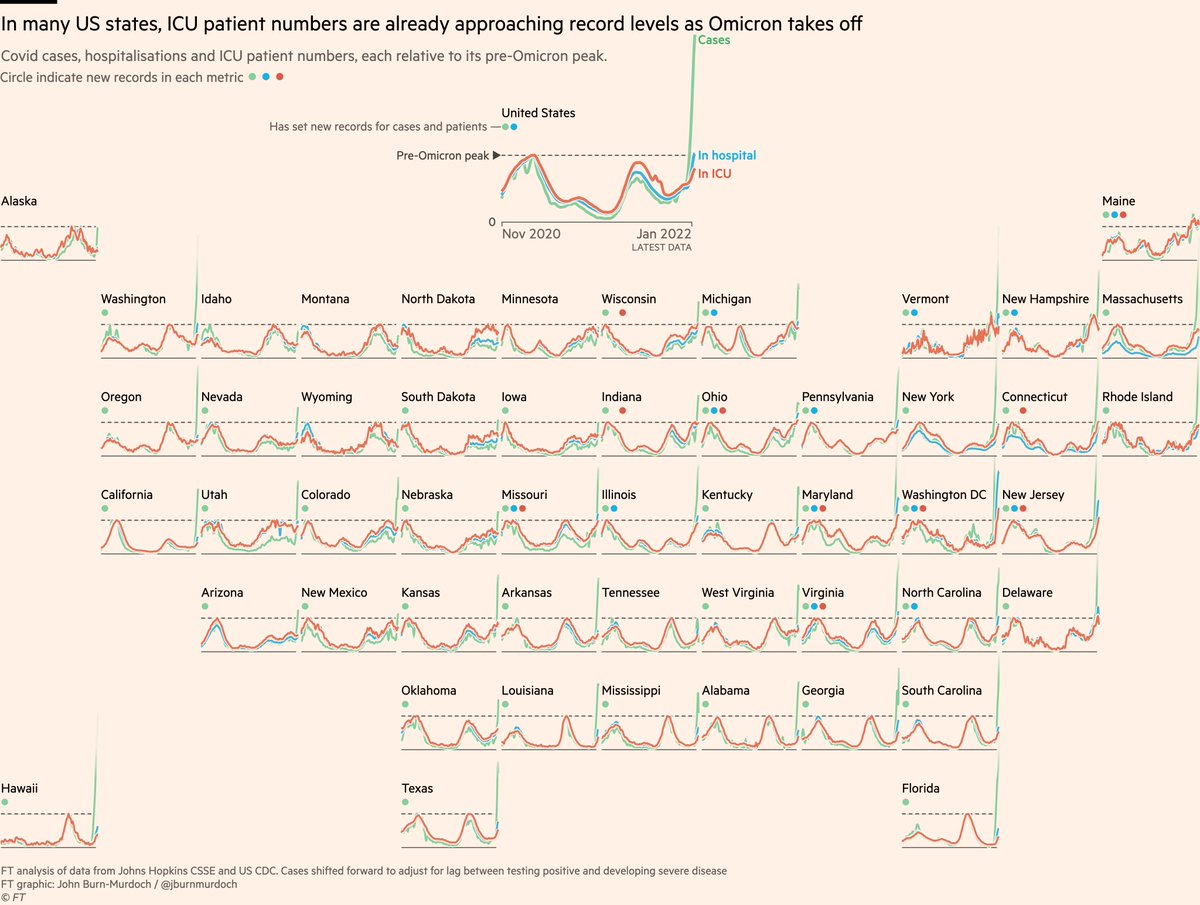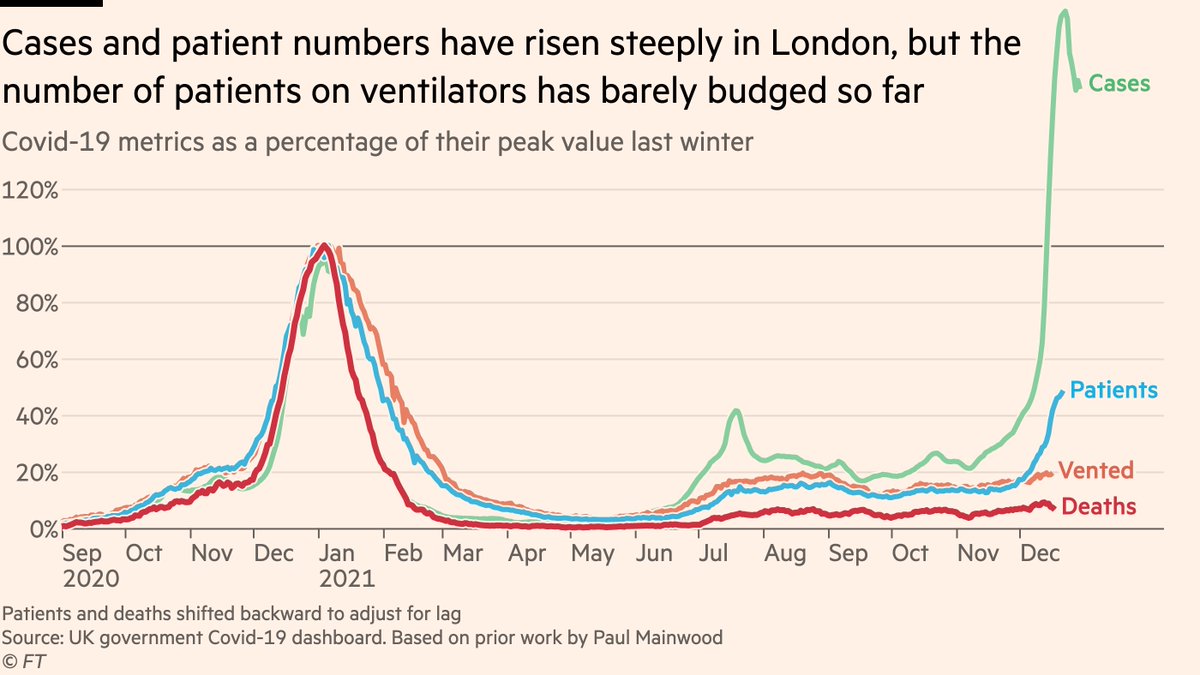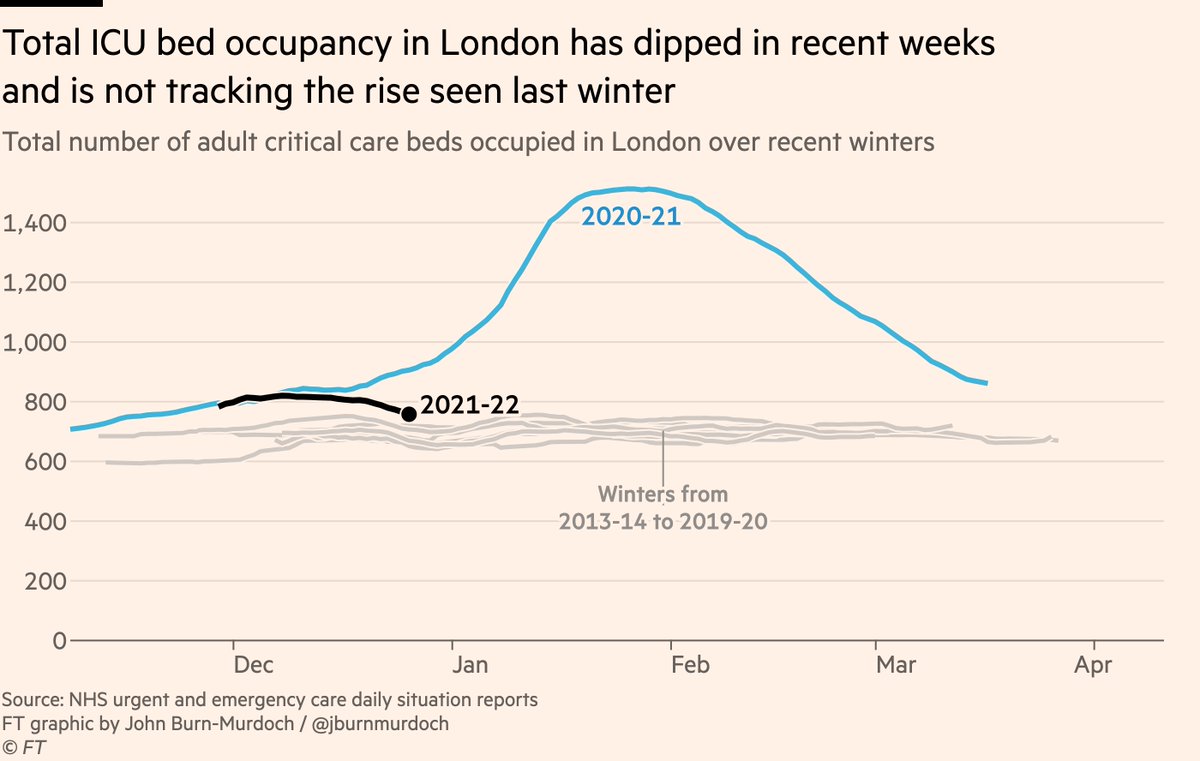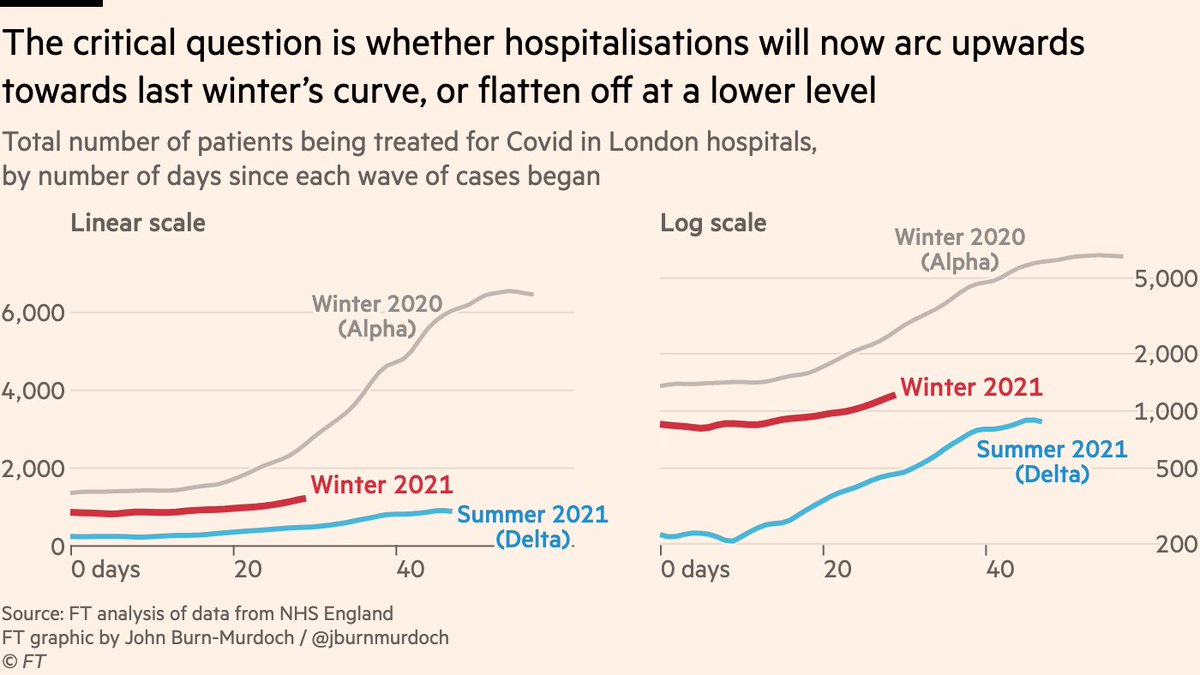
The Netherlands is one of the most interesting places for tracking the divergence of cases from more acute outcomes as Omicron takes over
Timing of its winter Delta wave meant numbers rose *and fell* before Omicron took off, so any rise now can reasonably be attributed to Omi
Timing of its winter Delta wave meant numbers rose *and fell* before Omicron took off, so any rise now can reasonably be attributed to Omi
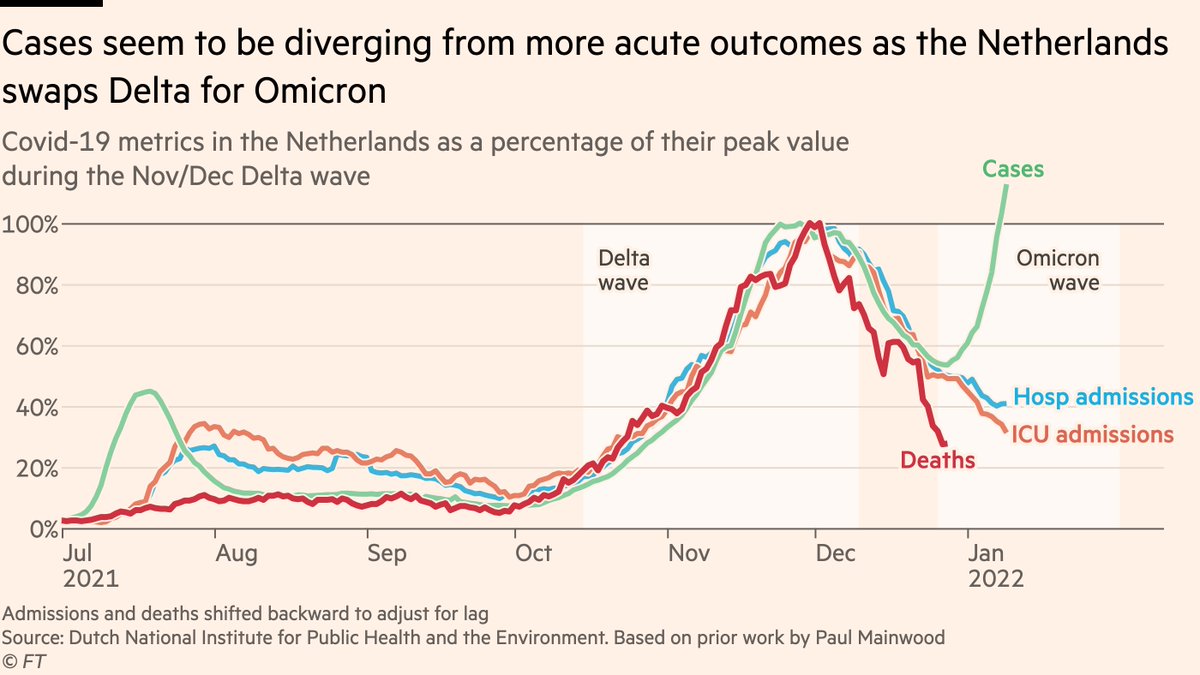
This is in contrast to places like the US where Omicron is piggy-backing on top of a fierce winter Delta wave, making it tricky to know whether it’s Omicron or Delta that’s sending hospitalisations ever higher 
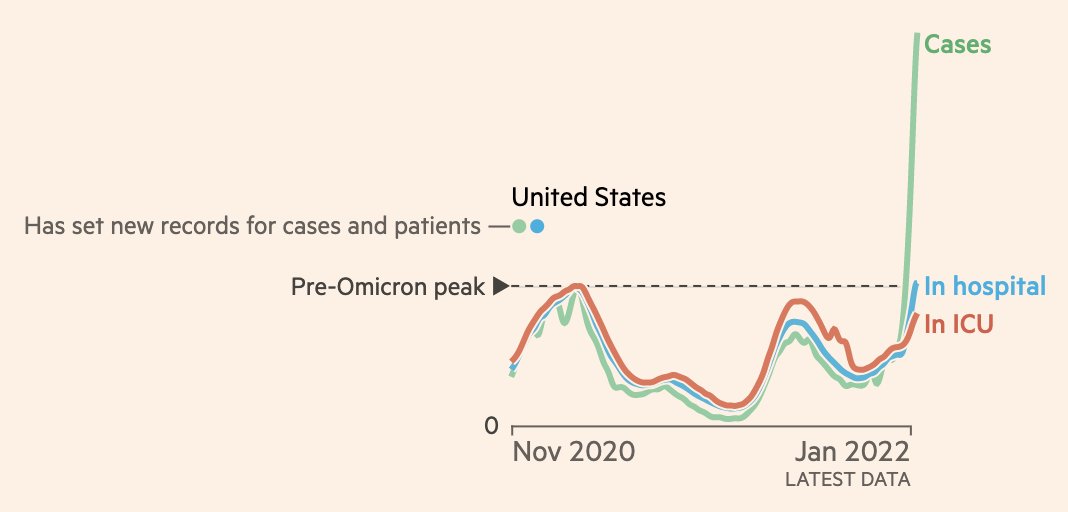
New South Wales (Australia) similar to Netherlands:
• All metrics rose then fell in earlier Delta wave
• All have since risen with Omicron (i.e yes Omi can still cause severe disease among those with little or no immunity)
• But acute outcomes completely diverged from cases
• All metrics rose then fell in earlier Delta wave
• All have since risen with Omicron (i.e yes Omi can still cause severe disease among those with little or no immunity)
• But acute outcomes completely diverged from cases
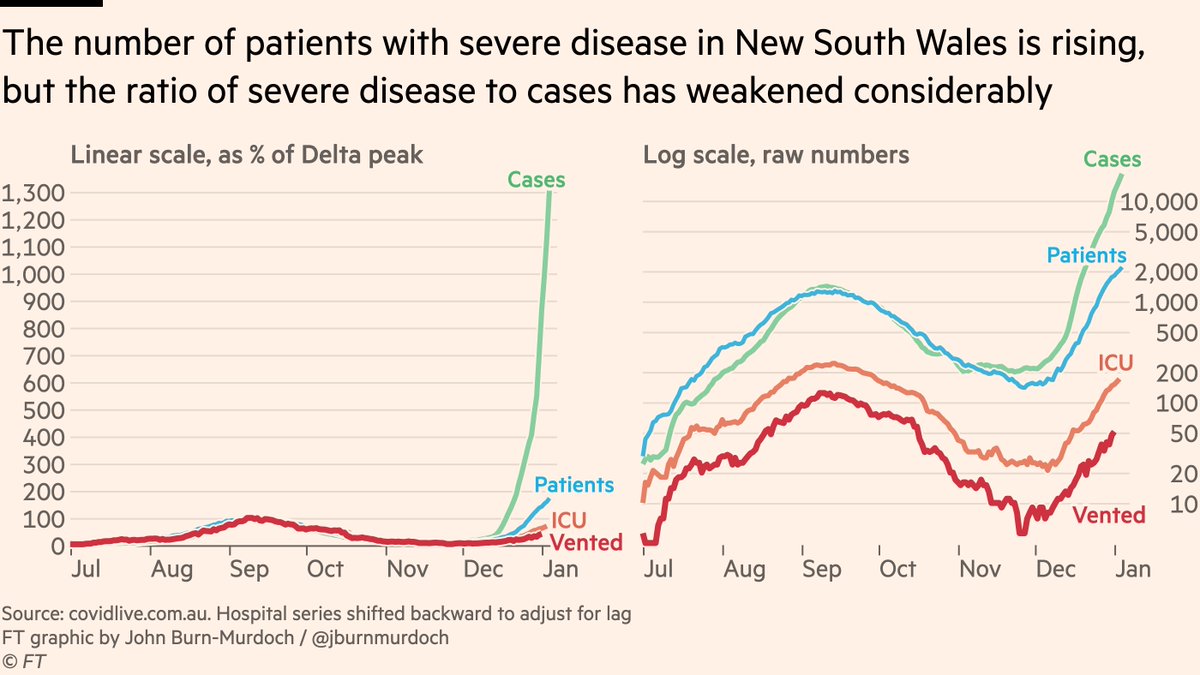
To be clear, I wouldn’t be surprised if hospitalisations and deaths do rise again in the Netherlands in the next month, but it’s clear their rise won’t track the trajectory of cases like it did with Delta.
• • •
Missing some Tweet in this thread? You can try to
force a refresh

